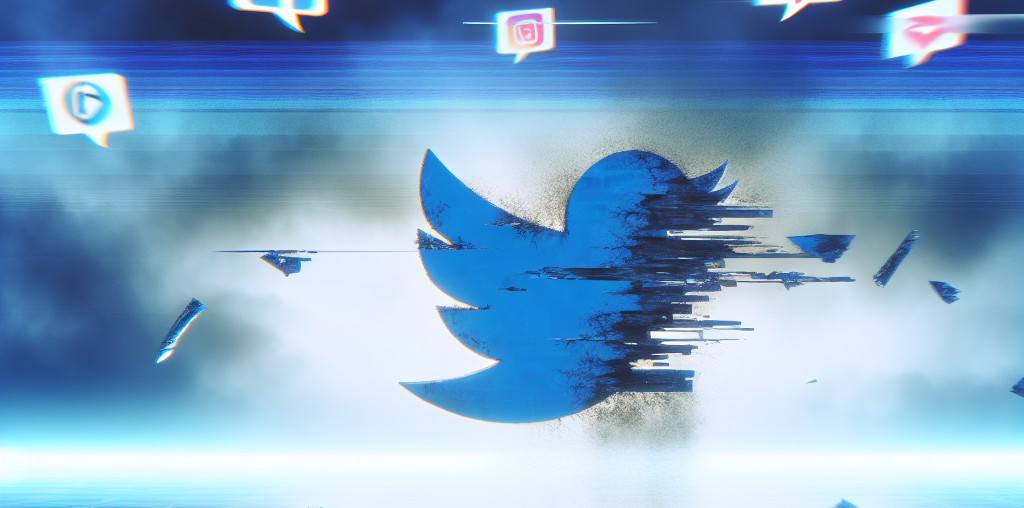Elon Musk’s Twitter Takeover and the Decline of Online Trust
In late 2022, Elon Musk, the visionary behind companies like Tesla and SpaceX, made headlines once again with his acquisition of Twitter. While many were curious to see how Musk’s bold leadership would transform the social media giant, others feared his involvement might signal trouble for the platform’s integrity. As time passed, concerns about **online trust** and the overall health of the digital information ecosystem began to surface. Some argue that Musk’s changes have made Twitter a more chaotic and less trustworthy space, raising questions about the future of **online safety**.
The Immediate Fallout of Musk’s Takeover
From the moment **Elon Musk** took control of Twitter, there was significant turbulence. Almost immediately, he began making sweeping changes to the team responsible for **content moderation and trust and safety**. These decisions triggered a wave of resignations and layoffs across key departments.
Among the most notable actions was Musk’s dissolution of key advisory groups, including the **Trust and Safety Council**. These groups had played essential roles in shaping the platform’s approach to hate speech, misinformation, and other harmful content. Without these structures in place, many fear that Twitter is now less equipped than ever to handle issues related to **content moderation** and **online safety**.
Misinformation and Hate Speech Surge
With Musk’s decision to **reinstate previously banned accounts**, including those of high-profile individuals known for spreading misinformation, Twitter saw a notable uptick in harmful content. According to reports, hate speech and conspiracy theories gained renewed traction on the platform. This surge in harmful discourse has made Twitter feel like a less welcoming place for many users and has fueled a growing perception that the platform is becoming a haven for toxicity.
Some specific areas of concern include:
- Misinformation: The spread of false and misleading information has accelerated, and without robust content moderation guidelines, it’s harder for users to discern fact from fiction.
- Hate speech: By reinstating controversial figures, Musk inadvertently invited a resurgence of hate speech, particularly targeting marginalized communities.
Advertisers Pulling Out: A Blow to Twitter’s Revenue Model
As **Twitter’s content moderation** policies became less defined, advertisers began to express their discomfort. Major brands don’t want their content appearing next to hate speech or conspiracy theories, and this feeling quickly translated into real-world consequences for Twitter’s bottom line.
Several high-profile companies either scaled back or completely paused their advertising spend on the platform. These withdrawals represented a critical hit to Twitter’s primary revenue stream, as the platform has long relied on ad revenue to stay afloat.
Subscription Services: Twitter Blue and Verification Chaos
In an attempt to diversify the platform’s revenue streams, Musk introduced a revamped version of **Twitter Blue**, a subscription service allowing users to purchase verification badges. Verification, once a tool for distinguishing legitimate accounts from impersonators, became a paid feature, diluting its original purpose.
This move led to widespread abuse of the verification system, with impersonation becoming rampant. Fake accounts with blue checkmarks popped up, leading to confusion among users and even companies. Some brands were impersonated to the point of stock market dips, as false information circulated under the guise of legitimacy.
These actions revealed a larger issue: **Twitter’s trustworthiness** was eroding under Musk’s leadership, and its role as a reliable source of information was in jeopardy.
The Erosion of Trust Across the Industry
Musk’s influence over Twitter has had reverberations beyond the platform itself. The **social media and trust and safety industries** have felt the impact, as Musk’s leadership style sends a broader message about the role of content moderation in modern digital spaces. Many fear that Twitter’s decline could set a precedent for other platforms, where the dismantling of moderation teams could lead to a wider erosion of **online trust**.
This brings us to a crucial question: What is the **responsibility of social media platforms** in maintaining **online trust**?
Social Media’s Role in Public Discourse
Social media platforms like Twitter are not just spaces for casual interactions. They are arenas where political movements are shaped, public health information is disseminated, and people engage with news and current events. Therefore, the systems in place to guard against **misinformation** and **harmful speech** are more important than ever.
Without robust safeguards, platforms risk becoming overwhelmed by **toxic behavior** and false narratives. This, in turn, diminishes the public’s trust in these tools, which have become essential parts of daily life.
Can Musk Rebuild Trust?
While Musk has defended his decisions as efforts to promote **free speech**, the consequences of those decisions are hard to ignore. Twitter, once seen as a platform that prioritized user safety and public discourse, now faces an uncertain future. For Musk to restore **trust** on Twitter, he may need to reverse or rethink some of his most controversial decisions, particularly around **content moderation** and the **verification process**.
Moreover, the industry as a whole will likely need to reflect on this moment as a wake-up call. The balance between **free expression** and **responsible content moderation** is delicate, but it is one that must be maintained to keep our digital spaces both free and safe.
Concluding Thoughts: The Future of Trust and Safety
Elon Musk’s takeover of Twitter has been nothing short of disruptive, but the long-term effects on the **trust and safety** landscape are still unfolding. What is clear is that social media platforms play a crucial role in shaping public discourse and that they must take their responsibility seriously. If Twitter, and indeed other platforms, are to regain the **trust** of their users, they’ll need to find a way to strike the right balance between free speech and user safety. However, for now, Musk’s unorthodox approach has raised many red flags, and the erosion of **online trust** continues to be a pressing concern.

